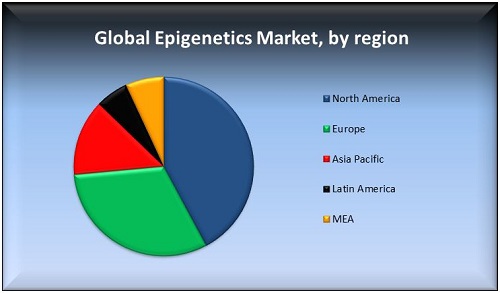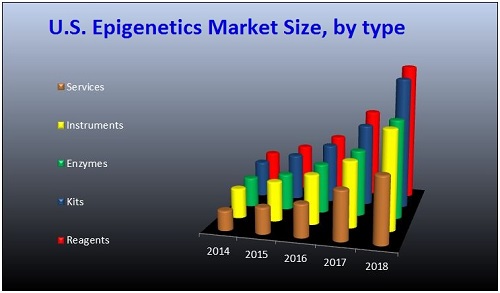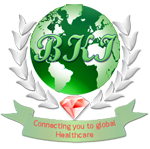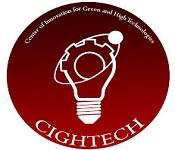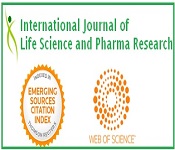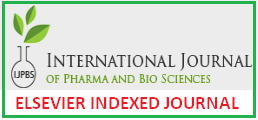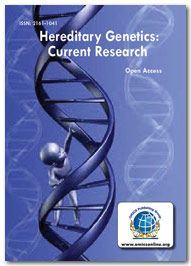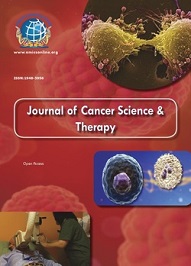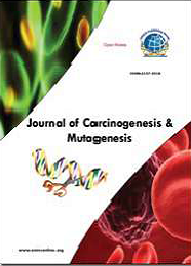Theme: Exceeding the Vision in the Field of Epigenetics and Molecular Biology
Epigenetics Congress 2019
Join us for the EPIGENETICS CONGRESS 2019
Update your skills, enhance your knowledge base, and broaden your horizons—all in one place!
Date: November 11-12, 2019
Venue: Amsterdam, Netherlands
The principal objective of this congress is to produce a platform for cutting-edge research in epigenetics and chromosome. Through energize sessions and many of networking, you may learn to be more brave and audacious than you're now and liberal to develop your mind, increase your business, and alter your bottom-line in a positive approach.
This event is accredited by the Continuing Professional Development (CPD) credits. The Certification enlightens professionals to authorize their expertise into a structured and established approach towards the hunger of knowledge.
Continuing Professional Development keeps you up to date on current and emerging developments
Epigenetics Congress 2019 typically incorporates lectures, paper, and poster sessions, and panel discussions with prominent international experts and scholars. We also feature product exhibitions, workshops, and student research competitions that generate networking opportunities for all attendees.
Abstracts Submissions are open in all areas related to Epigenetics, Genetics, Cancer Sciences & Molecular Biology.
Why to attend?
We are providing a unique learning and career building opportunities through Scientific Sessions, Workshops, Keynote forums, Posters that you just can’t find anywhere else.
The 2019 Conference is bringing together 50+ professionals from 23+ countries for the education, innovation and collaboration – all at one time, all in one place. Choose from 20+ education sessions, 10+ exhibitors, and endless networking events.
Target Audience/who should attend?
-
Professors, Deans & Directors of Biology Universities and Institutes
-
Scientists
-
Biomedical companies
-
Pharmaceutical companies
-
Business Entrepreneurs
-
Public wellbeing experts
The organization working in:
-
Genetics
-
Genomics and Proteomics
-
Bioinformatics
-
Molecular Biology
-
Medicine
-
Organic Chemistry
-
Natural Science field
-
Stem cell biology
-
Cancer
-
Oncology
Track 1: Animal Epigenetics
Epigenetic and transgenerational epigenetic inheritance research is performed on multiple varieties of mammal, insect, and plant. Pesticides are the reason for having dramatic transgenerational epigenetic effects on several of the animal models that affecting the nervous system, reproductive and endocrine systems, and even causing cancer.
- Animal epigenetics welfare
- Animal models in epigenetics research
- Animal cloning epigenetics
Track 2: Behavioral Epigenetics
Behavioral epigenetics is meant by study the role of epigenetics in shaping animal and human behavior. It’s an observational science that explores that how the nurture shapes the biological heredity, wherever nurture refers to nearly all things that occur throughout the life-span like social-experience, diet and nutrition, and exposure to toxins. Behavioral epigenetics is giving a structure to grasp regarding how the expression of genes is altered by experiences and surroundings for forming the variations in behavior, cognition, personality, and mental state of everyone.
- Drug addiction
- Psychopathy
- Depressive disorder
- Eating disorder
- Social behavior of animal and human
Track 3: Cancer Epigenetics
Cancer epigenetics is considered as the study of actual heritable changes to molecular processes that influence the flow of information between the DNA of cancer cells and their gene expression patterns. This includes a comparison between the tumor cell and normal cell and investigation of nuclear organization, DNA methylation, and Histone modification and also the consequences of genetic mutations in genes encoding epigenetic regulators. DNA methylation patterns undergo complex changes in cancer.
- Histone modification
- MicroRNA gene silencing
- Epigenetics carcinogenic
- Prostate cancer
- Cervical cancer
Track 4: Chromatin and Chromosome Dynamics
A chromosome is a DNA molecule within which either part or all of the genetic material is present. The condensation of chromatin is employed to create the chromosome. Chromatin structure depends on many factors.
- Chromatin packaging
- Autosomal Chromosomes
- Sexual Chromosomes
- Chromosomal Segregation
- Centromere and Telomere
- Homo and Hetro Chromosome
Track 5: Chromosomal Evolution and Speciation
Chromosomal speciation is one among the most important modes of the origin of latest species through the splitting of pre-existent species. New species might originate by gene evolution, and conjointly by the establishment of postâ€mating reproductive isolation through structural chromosome rearrangements. The latter might induce lowâ€hybrid fitness, generated by macromutations, and even by micromutations, that is, molecular changes inflicting meiotic disturbances (e.g. GC incompatibilities), though the latter awaits empirical support.
- Chromosomal speciation
- Evolution of Species
- Evolutionary Genomics
Track 6: Chromosome Abnormality
A chromosome abnormality, disorder, anomaly, aberration, or mutation could be a missing, extra, or irregular portion of chromosomal DNA. It may be from an atypical variety of chromosomes or a structural abnormality in one or additional chromosomes. Chromosome mutation was formerly utilized in a strict sense to mean a modification in a chromosomal section, involving more than one gene.
- Numerical disorders
- Structural abnormalities
- DNA damage during spermatogenesis
- Mosaicism
Track 7: Chromosome Biology in Agriculture
Occasionally in genetic studies or in plant breeding, there's advantage in manipulating no single genes however massive arrays of associated genes. Such arrays might include all of the genes in a set of chromosomes, or on one chromosome, or on a section of a chromosome.
- Crop genetic engineering
- Plant artificial chromosomes
- Chromosome mechanics in plant breeding
- Chromosomal abnormalities in plants
Track 8: Computational and System Genetics
Many of the process, mathematical and applied math strategies, ranging from data processing, sequence analysis, molecular interactions, too complicated system-level simulations, are according within the literature. Efforts are channeled into the text mining of epigenetic data, though development during this field remains at an early stage.
- Epigenome data analysis
- Epigenome prediction
- Bioinformatics methods
- Cancer informatics
- Genome browsers
Track 9: DNA Methylation
DNA methylation is a method by that methyl groups are added to the DNA molecule. Methylation will modify the activity of a DNA section without ever-changing the sequence. When placed in a gene promoter, DNA methylation usually acts to repress gene transcription. DNA methylation is important for normal development and is related to a variety of key processes including genomic imprinting, X-chromosome inactivation, repression of permutable elements, aging and carcinogenesis.
- DNA methyltransferases
- CpG islands
- DNA methylation age
- DNA methylation marks
- Differentially methylated regions
Track 10: Epigenetic Disorders
Epigenetic modifications are the cause for the malady developments, environmental exposure, drug treatment, and aging. Epigenetic changes will be reversible and are doubtless targeted by the pharmacological intervention. Epigenetic changes are the factors of human diseases, including Fragile X syndrome, Angelman’s syndrome, Prader-Willi syndrome, and numerous cancers. Concerning eightieth of brain disorders are connected with multiple genomic defects in conjunction with environmental factors and epigenetic phenomena.
- Autosomal dominant polycystic kidney disease
- Mitochondria diseases
- Nondisjunction
- Aneuploidy
- Cardiovascular diseases
Track 11: Epigenetic in Aging
Epigenetic changes have an outsized variety of effects on the aging process.Atvaried levels, these epigenetic changes occur, together with decreasing the amount of the core histones, changes within the patterns of histone post-translational modifications and DNA methylation, substitution of canonical histones with histone variants and changes the noncoding polymer [removed]during each organismic aging and replicative senescence). The reversible nature of epigenetic data provides an exciting path for therapeutic intervention in aging and age-associated diseases, as well as cancer.
- Epigenetic clock
- Epigenetic changes in aging
- Histone modification changes during aging
- Transgenerational epigenetic changes that affect aging
- DNA methylation changes during aging
Track 12: Epigenetic Therapy
Epigenetic therapy is supposed to use the medication or epigenome-influencing techniques to treat medical states. Histone deacetylases (HDACs) that modify histones and DNA methyltransferases (DNMTs) that methylate deoxyribonucleic acid are the 2 enzymes that are necessary for epigenetic modifications and key targets for therapy with pharmaceutical drugs. Successful clinical studies disbursed for each the enzymes. Epigenetic therapy has shown a powerful effectiveness against hematological malignancies and solid tumors, gaining FDA approval for connective tissue T-cell cancer, ER-positive metastatic breast cancer, myelodysplastic syndrome, multiple myeloma, and peripheral T-cell cancer. Epigenetic therapy has verified productive for many styles of cancer, together with lung cancer, breast cancer, and lymphoma.
- Fear
- Anxiety
- Trauma
- Cardiac dysfunction
- Schizophrenia
- Pharmacokinetics epigenetics
Track 13: Epigenetics
Epigenetics is meant by the study of hereditary changes in gene function without involving the changes in DNA arrangement. It primarily involves the changes in a chromosome that affects gene activity and functions, and even be used to report any heritable phenotypic change which does not derive from a modification of the genome. Epigenetic change can be influenced by several factors like age, the environment, and disease state.
- DNA damage
- Histone modification
- DNA methylation
- Nucleosome positioning
- Non-coding RNA
- Epimutation
Track 14: Epigenetics and Medicine
A comprehensive study of the importance of epigenetics to health management is provided by the Medical Epigenetics. Medical epigenetics is that specialize in human systems, epigenetic diseases and coverings supported epigenetics-disorders and diseases. Medical epigenetics can cover all human systems relevant to epigenetic maladies. When the gathering of genomic info and related information like the degree of RNA, proteins and varied metabolites that are crucial factors in medical, the genomic or personalized medicines are given to patients.
- Methylation inhibiting drugs
- Bromodomain and inhibitors
- Histone acetylase (HAT) inhibitors
- Protein methyltransferase inhibitors
- Epigenetics meets endocrinology
- Future Direction of epigenetic drugs
Track 15: Epigenetics in Nervous System
Epigenetics within the nervous system is that the study of the interaction between epigenetic method, that regulates gene expression without dynamic the DNA sequence, and therefore the development, physiology, and functions of the nervous system.
- Genome Architecture and Functions
- Histone modifications in the nervous system
- Neurological disorders
- Mania (Bipolar disorder)
- Brain disorders
Track 16: Genomes and Epigenomes
The epigenome is meant by the study of epigenetic modifications on the genetic material of a cell. The sector is parallel to genomics and proteomics that is the study of the genome and proteome of a cell. Epigenomic maintenance (continuous process) has a very important role in maintaining the stability of eukaryotic genomes by collaborating with crucial biological mechanisms. Some epigenomic marks like plant flavones can cause cancers.
- Human genome
- Human genomics project
- Plant genomics
- Histone modification assay
- Epigenomics compounds
Track 17: Human Cognition Epigenetics
Epigenetic mechanisms of the pathological process are involved in many Central nervous system diseases, containing neurodevelopmental disorders of cognition where interruption in learning and memory are the first clinical abnormality. Cognition typically refers to the mental processes comprising the gain of information and also the ability to understand the same. There are about eighty-six billion neurons within the human brain that are from sets of huge and little scale synaptic networks. These networks form structures that perform as networks for learning and cognition.
- Cognitive neuroepigenetics
- Epigenetic code
- Role of MAPK signaling in regulating epigenetic changes
- Epigenetic interventions
Track 18: Nutriepigenomics
Nutriepigenomics generally refers to the study of food nutrients and their effects on humans throughout the epigenetic changes. Nutritional imbalance during the early stages of life may also cause non-communicable diseases such as obesity, hypertension, cancer, and cardiovascular diseases. The period of development in which the nutritional imbalance occurs also determines the type of genes which will be affected. In nutriepigenomic studies there exist, certain models, to brief the role of nutrition on phenotype. One of the interesting methods is the catch-up method in which the offspring of the rat is subjected to different types of diets and then cross-fostered with the normal rats.
- Nutriepigenetics and development
- Transgenerational effects
- Catch-up model
- Prenatal, perinatal and adulthood effects
Track 19: Plant Epigenetics
Plants are primarily depending on epigenetic processes for their correct functions. Plant epigenomes are additionally vulnerable to environmental influence than those in animals. Epigenetic mechanisms are needed for correct regulation whereas epi-alleles and epi-mutants, very like they're genetic enhances, describe changes in phenotype related to distinct epigenetic circumstance. The study of epigenetics in plants is scientifically enthusiasm as a result of epigenetics have long-standing importance in agriculture.
- Growth and development
- Plant transgenerational epigenetics
- Genotype and Phenotype
- Epitranscriptomics
Track 20: Population and Evolutionary Chromosome Biology
As per the present excitement of field of genomics, we are able to simply forget that genes are simply little sections of DNA and part of abundant larger structures referred to as chromosomes.
- Genetic diversity
- Genetic variation
- Genetic drift
- Chromosomal evolution
- Migration and mutation
Track 21: Transgenerational Epigenetics Inheritance
Transgenerational epigenetic inheritance is that the transfer of knowledge in organisms from parents to a kid that affects the characteristics of future generation while not altering the first structure of DNA that's epigenetically. The term "epigenetic inheritance" could also be used to describe info transfer in both the between cell and cell or organism and organism in organisms. though in unicellular organisms these 2 levels of epigenetic inheritance are equivalent, they'll have distinct mechanisms and evolutionary distinctions in multicellular organisms.
- Deleterious effects
- Putatively adaptive effects
- Inheritance of epigenetic marks
Research and diagnostics areas in gene regulation studies, biomarker detection, and drug discovery cover the market of Epigenetics Technology. It includes the factors driving and dominates the market and conjointly covers the market theme in the United State, Europe, Asia, and all the other countries. Its market is set to realize USD 1,605.7 Million up to 2022. It’s USD 854.0 Million in 2017, with CAGR of 13.5% amid an anticipated amount. The event of the market is handled by the decreasing sequencing prices, increment in explore exercises, rising pervasiveness of malignancy, and nice government financing for epigenetics. Epigenetics has been finding out significance as a promising logical approach for understanding the impact of the epigenetic instruments in malignancy and totally different sicknesses. Quick progressions are happening particularly within the field of therapeutics.
The industry is seeing an additional extensive acknowledgment as an additional range of academic research colleges; biotech and pharmaceutical company organizations can embrace Epigenetics primarily based approach in diagnostics and therapeutics.
Global Epigenetics Market, by Product
- Enzymes
- Instruments and Consumables
- Kits
- Reagents
- Bioinformatics Tools
Global Epigenetics Market, by Application
- Oncology
- Metabolic Diseases
- Developmental Biology
- Immunology
- Cardiovascular Diseases
- Other Applications
Global Epigenetics Market, by Technology
- DNA Methylation
- Histone Modifications
- Other Technologies
Global Epigenetics Market, By End User
- Academic and Research Institutes
- Pharmaceutical and Biotechnology Companies
- Contract Research Organizations (CROs)
Global Epigenetics Market, by Region
-
North America
- US
- Canada
-
Europe
- Germany
- France
- UK
- Italy
- Spain
- Rest of Europe
-
Asia Pacific
- Japan
- China
- India
- Rest of Asia Pacific
- Latin America
- Middle East and Africa
Related Societies
European Societies
Clinical Epigenetics Society | The Epigenetics Society | Association of Clinical Cytogeneticists | British Society for Human Genetics | Clinical Genetics Society | Clinical Molecular Genetics Society | Genetics Society | Human Genetics Commission | Austrian Society for Human Genetics | Belgian Society for Human Genetics | Czech Society of Medical Genetics | Danish Society of Medical Genetics | Dutch Association of Clinical Genetics | Finnish Society of Medical Genetics | French Society of Human Genetics | European Society for Medical Oncology | European Oncology Nursing Society | European Association for Cancer Research | European Society of Human Genetics | European Genetics Foundation | European Cytogeneticist Association | European Society of Gene Therapy | Clinical Molecular Genetics Society
USA Societies
American Cancer Society | Hematology/Oncology Pharmacy Association | American Association for Cancer Research | Association of International Cancer Research | International Agency for Research on Cancer | American Society of Human Genetics | National Society of Genetic Counselors | American College of Medical Genetics | American Board of Genetic Counseling | American Board of Medical Genetics | Nation Coalition for Health Education in Genetics | International Society of Nurses in Genetics | Council of Regional Networks | Association of Genetic Technologists | Genetic Society of America
Asian Societies
Australian Epigenetics Alliance |Asian Clinical Oncology Society| Asian Oncology Nursing Society | Asian Society of Gynecologic Oncology | Asian Society for Neuro-Oncology| East Asian Union of Human Genetics Societies | Association of Chinese Geneticists in America | Hong Kong Society of Medical Genetics | Japan Society of Human Genetics | Genetics Society of Korea | Korean Society of Human Genetics | Genetics Society of Vietnam | Turkish Association of Medical Genetics | Japan Society of Gene Therapy | American Human Geneticists of Indian Subcontinent Origin
Master The Skills Of Epigenetics Conference And Be Successful
Every day brings new suggestion that the mind-body association reaches right down to the activities of our genes.
How this activity changes in response to our life experiences is referred to as “epigenetics”. Regardless of the nature of the genes we inherit from our parents, dynamic change at this level allows us almost unlimited influence on our fate.
Be a part of 6th World Congress on Epigenetics and Chromosome during November 14-15, 2019 at Cape Town, South Africa
Conference Highlights
- Animal Epigenetics
- Behavioral Epigenetics
- Cancer Epigenetics
- Chromatin and Chromosome Dynamics
- Chromosomal Evolution and Speciation
- Chromosome Abnormality
- Chromosome Biology in Agriculture
- Computational and System Genetics
- DNA Methylation
- Epigenetic Disorders
- Epigenetic in Aging
- Epigenetic Therapy
- Epigenetics
- Epigenetics and Medicine
- Epigenetics in Nervous System
- Genomes and Epigenomes
- Human Cognition Epigenetics
- Nutriepigenomics
- Plant Epigenetics
- Population and Evolutionary Chromosome Biology
- Transgenerational Epigenetics Inheritance
To share your views and research, please click here to register for the Conference.
To Collaborate Scientific Professionals around the World
| Conference Date | November 11-12, 2019 | ||
| Sponsors & Exhibitors |
|
||
| Speaker Opportunity Closed | |||
| Poster Opportunity Closed | Click Here to View | ||
Useful Links
Special Issues
All accepted abstracts will be published in respective Our International Journals.
- Hereditary Genetics: Current Research
- Journal of Cancer Science & Therapy
- Journal of Carcinogenesis & Mutagenesis
Abstracts will be provided with Digital Object Identifier by




















